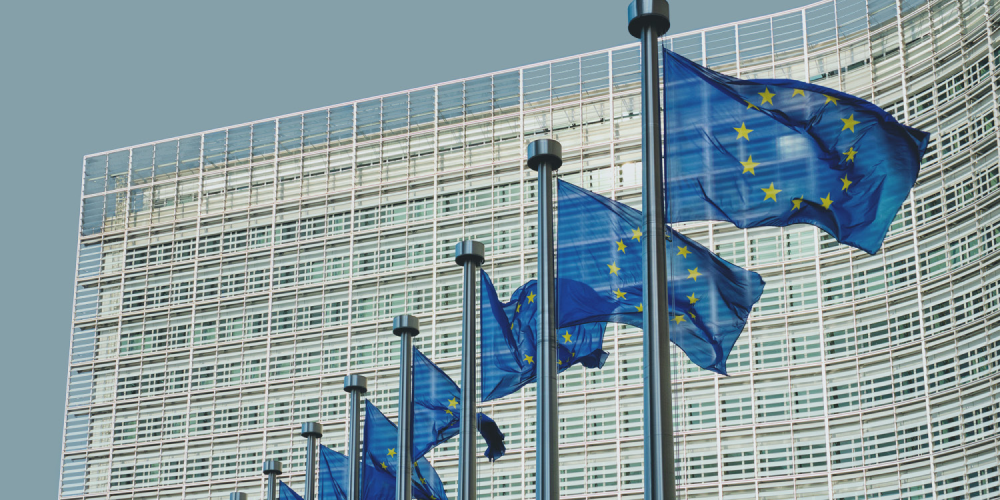B&C IS YOUR SOLUTION FOR HREDD COMPLIANT TEXTILES

WHAT IS HUMAN RIGHTS & ENVIRONMENTAL DUE DILIGENCE?
HREDD (Human Rights & Environmental Due Diligence) refers to a process by which companies assess their potential human rights and environmental impacts and take appropriate measures to prevent, mitigate or remediate any adverse effects in their Supply Chain. It’s an essential tool for ensuring that companies respect both human rights and the environment throughout their operations, supply chains and governance.
It’s a concept that’s gained prominence in Europe through various initiatives that recognise the importance of companies’ human rights and environmental obligations, such as for example the United Nations Guiding Principles on Business and Human Rights (UNGPs) and the European Union’s Sustainable Corporate Governance Initiative.
The scope of HREDD initiatives includes all sectors in the economies where they are implemented, and therefore they have a direct impact on our textiles and imprint market too.
That’s why we’re proud that thanks to our due diligence process from farm to warehouse, B&C is HREDD compliant!
THERE’S ALREADY LEGISLATION
A growing number of European countries have already enacted HREDD frameworks, including France, the Netherlands, Germany, Norway and the UK. Others such as Belgium, Switzerland, Austria and Denmark are in the process of enacting legislation and the EU has just voted in favour of a common position on rules to hold companies accountable for human rights and environmental breaches. This all demonstrates the increasing importance of HREDD across Europe and its relevance for our business.

WHAT DO THE LAWS SAY?
FRANCE: the Due Diligence Law (Devoir de Vigilance) is in place since 2017. It requires French companies with over 5,000 employees, or over 10,000 employees worldwide, to establish and implement a vigilance plan to identify and prevent any adverse human rights, environmental, and social impacts resulting from their activities, products or services.
THE NETHERLANDS: the Child Labour Due Diligence Law (Wet Zorgplicht Kinderarbeid) is in place since 2019. It obligates companies to investigate and address child labour practices in their supply chains. This law applies to companies selling goods or services in the Dutch market and targets companies whose annual turnover exceeds €40 million.
GERMANY: the Supply Chain Due Diligence Act (Lieferkettenzorgfaltsplichtengesetz) is in place since January 2023. It requires large companies (more than 3,000 employees in Germany, and as from 2024 with more than 1,000 employees) to take reasonable measures to identify and address any human rights violations in their supply chains, including those committed by their business partners.
NORWAY, the Transparency Act is in place since July 2022. Designed to promote companies’ respect for fundamental human rights and decent working conditions in connection with the production of goods and services, it also ensures the general public access to information regarding how companies address any adverse impacts. It applies to a large range of companies, requiring them to respond to information requests about how they address potential and actual impacts on human rights and decent working conditions. Companies must publish their first reports by 30 June 2023.
UK: The Modern Slavery Act is in place since 2015. It was introduced to combat modern-day slavery in the UK and overseas. The act requires companies with a turnover of over £36 million to publish annual statements detailing their efforts to prevent modern slavery in their operations and supply chains.
THERE’S AN EU REGULATORY FRAMEWORK IN THE PIPELINE
In February 2022, the European Commission adopted a proposal for a Directive on Corporate Sustainability Due Diligence (2022/0051 – COD). This proposed directive sets out the rules regulating due diligence obligations to ensure companies identify, prevent and mitigate adverse impacts on human rights or the environment due to their activities.
It will require large companies to conduct HREDD as part of their due diligence obligations and applies to all companies operating in the EU, regardless of their sector. This Directive is expected to come into force in 2024.
THERE ARE RISKS IF COMPANIES DON’T COMPLY
With legislation come risks if companies don’t follow the law, and there will be mechanisms in place to enforce the rules.
- Fines and Compliance Orders Member States will designate an authority to supervise and impose effective, proportionate and dissuasive sanctions, including fines and compliance orders.
- Civil liability: Member States will ensure that victims get compensation for damages resulting from the failure to comply with the obligations of the new proposals.
- Reputational damage: HREDD is not only a legal requirement but also a moral consideration for companies that are committed to responsible business practices. Implementing HREDD helps companies build and maintain trust with all their stakeholders (employees, investors, customers, civil society)
For example, in Germany, The Federal Office of Economics and Export Control (BAFA) is the competent authority for monitoring compliance with the Supply Chain Due Diligence Act. Non-complying companies may face administrative fines of up to €8 million or up to 2% of a group company‘s worldwide annual turnover. Serious non-compliance may also result in exclusion from public procurement for a maximum period of three years.
So, the sooner European companies implement HREDD and become compliant, the less they will be exposed to financial and criminal risks.

WHAT DOES HREDD MEAN FOR YOU?
As most HREDD legislation addresses the total supply chain of a product, it means that every stakeholder in each part of the chain has a responsibility to be compliant.
As a Brand, B&C has a duty to ensure (and capacity to demonstrate) due diligence across its production process, from supply chain to warehouse. As a wholesaler, distributor, decorator or reseller, you have an obligation to be able to prove to your customers that the products you offer and the services you propose are HREDD compliant.

THE GOOD NEWS IS B&C IS ALREADY HREDD COMPLIANT!
We see HREDD as a crucial tool for ensuring that companies respect human rights and prevent harm in their operations, and as both people and planet are the heart of B&C’s sustainability strategy, we have set-up the necessary processes to ensure that our operations and supply chain are fully compliant.
Based on the United Nations Guiding Principles on Business and Human Rights (UNGPs), our HREDD procedures include the necessary corporate policies, risk assessment processes, mitigation strategies and remediation tools and more, and are applied throughout our supply chain.
That means that when you purchase a B&C garment you can be confident that all necessary due diligence has been undertaken in the supply chain. More importantly, you can prove it to your customers. All the necessary HREDD documentation is available for you in our HREDD toolkit.

